Shen Dou Ushers in 'Unlimited Possibilities' for Baidu Intelligent Cloud
![]() 08/18 2025
08/18 2025
![]() 641
641
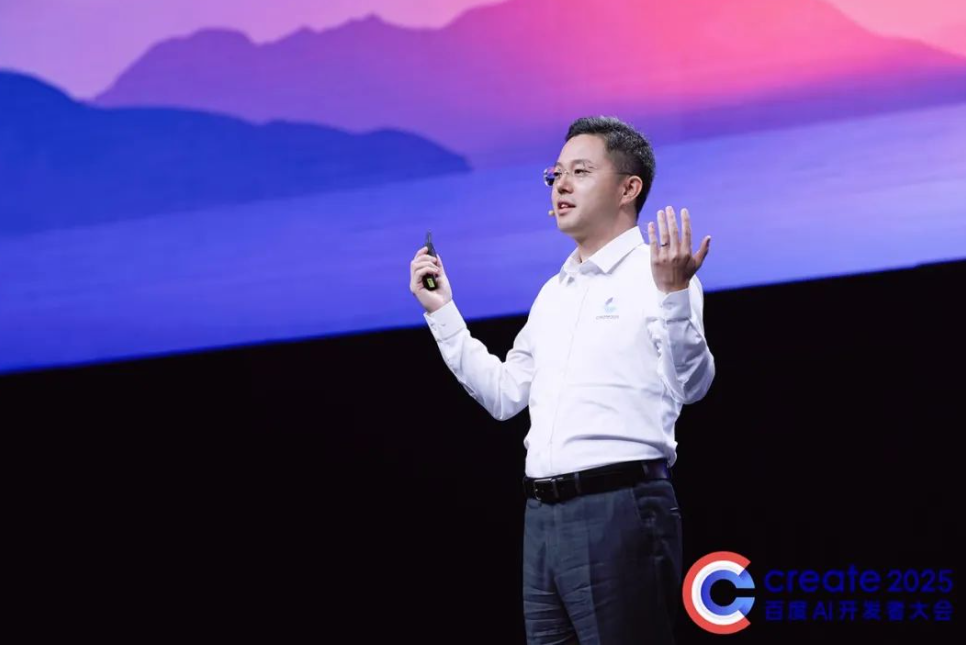
Written by: Xuan Xuan Ye
Art Design: Gu Qingqing
Produced by: Wang Jie
On August 28, 2025, Beijing's China National Convention Center Phase II will host a highly anticipated cloud computing industry event. The 2025 Baidu Cloud Intelligence Conference, themed "Intelligence Generates Unlimited Possibilities," anticipates over 10,000 attendees.
As President of Baidu Intelligent Cloud Business Group, Shen Dou will once again grace the stage to showcase his strategic achievements of the past three years to the industry. This pivotal moment will validate whether Shen Dou's differentiated approach in the cloud computing field has been successful.
Amidst fierce competition in China's cloud computing market, Baidu Intelligent Cloud was once deemed a laggard. When Alibaba Cloud, Tencent Cloud, and Huawei Cloud formed a formidable tripartite rivalry, Shen Dou chose a distinctly different path.
This seasoned technology executive, with a background in C-end business, did not opt to follow the traditional cloud computing trend but deeply integrated AI capabilities into cloud services. While industry giants battled over infrastructure, he had already set his sights on a higher-dimensional battlefield.
From taking over Baidu Intelligent Cloud in 2022 to the forthcoming conference, Shen Dou has spent three years proving the efficacy of his differentiated strategy. While other cloud providers were still discussing how AI could empower cloud computing, Baidu Intelligent Cloud had already achieved deep integration of cloud computing and AI.
This technical route has provided Baidu with a crucial breakthrough in the cloud computing market.
01 Crisis as Opportunity: Taking Over Intelligent Cloud
In May 2022, Shen Dou transitioned from the Mobile Ecosystem Business Group to become President of Baidu Intelligent Cloud Business Group. This seemingly routine personnel change concealed Baidu's deep contemplation regarding its intelligent cloud business.
Shen Dou's previous success was entirely derived from the C-end market. He transformed Baidu from a single search tool into a dual-engine ecosystem of "search + information flow," with over 70% of core revenue in 2021 stemming from online marketing. However, intelligent cloud is a quintessential B-end business, necessitating a completely different product mindset, customer service model, and business logic.
At that time, the cloud computing market had already established a relatively stable competitive landscape. Alibaba Cloud led with its e-commerce ecosystem advantage, followed closely by Tencent Cloud leveraging social and gaming scenarios, while Huawei Cloud demonstrated strong penetration in the government and enterprise market.
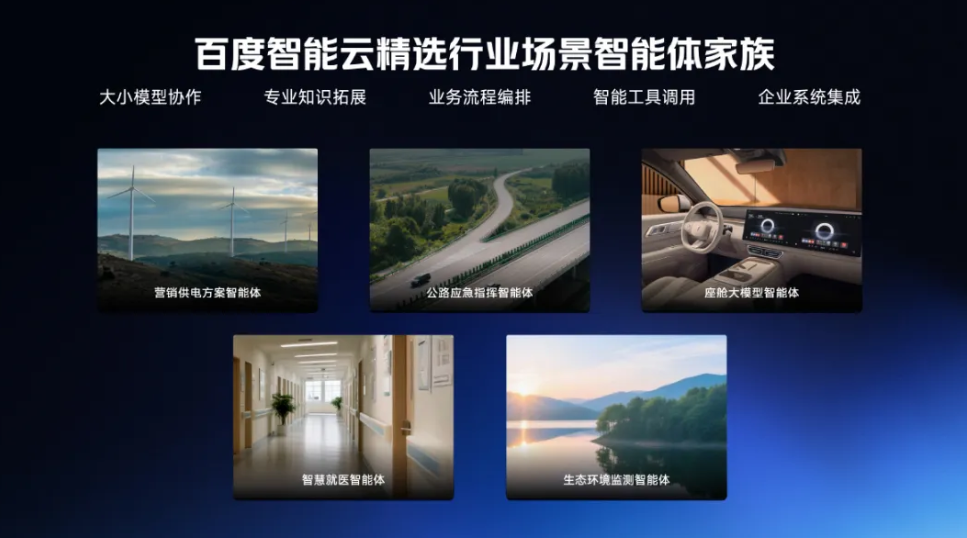
Baidu Intelligent Cloud had noticeable shortcomings in infrastructure investment, customer resource accumulation, and channel construction. More critically, traditional cloud computing businesses require substantial upfront investments and long-term customer cultivation, leading to an extended investment return cycle.
However, Shen Dou's arrival underscored Baidu's strategic clarity. Rather than fiercely competing in the red ocean of traditional cloud computing, it was better to explore a new path and leverage Baidu's technological accumulation in the AI field.
Traditional cloud computing is essentially an infrastructure business, competing on scale effects and cost control. AI cloud computing, on the other hand, is akin to a technical service business, with core competitiveness rooted in technical capabilities and scenario adaptability.
Shen Dou's appointment marked a rethinking of Baidu's positioning of its intelligent cloud business. It was no longer a pure cloud computing business but an AI-centric intelligent platform business. This positioning change laid the groundwork for subsequent strategic layouts.
02 Strategic Vision: Comprehensive Cloud-Intelligence Integration
Faced with fierce competition in the cloud computing market, Shen Dou did not choose to confront it head-on but instead proposed the forward-looking strategic concept of "Cloud-Intelligence Integration 3.0." The core of this strategy lies in deeply embedding AI capabilities into every facet of cloud computing.
Traditional cloud computing vendors offer standardized computing, storage, and network services, requiring users to build their own applications. In contrast, Baidu Intelligent Cloud directly provides cloud services infused with AI capabilities, enabling enterprises to access AI capabilities as seamlessly as electricity and water.
The launch of the Qianfan Large Model Platform epitomizes this strategy. The platform not only integrates the Wenxin Large Model but also brings together 42 mainstream large models from around the globe, offering enterprises an "AI Supermarket." Crucially, the platform provides a comprehensive development tool chain, lowering the technical barrier for enterprises to leverage AI.
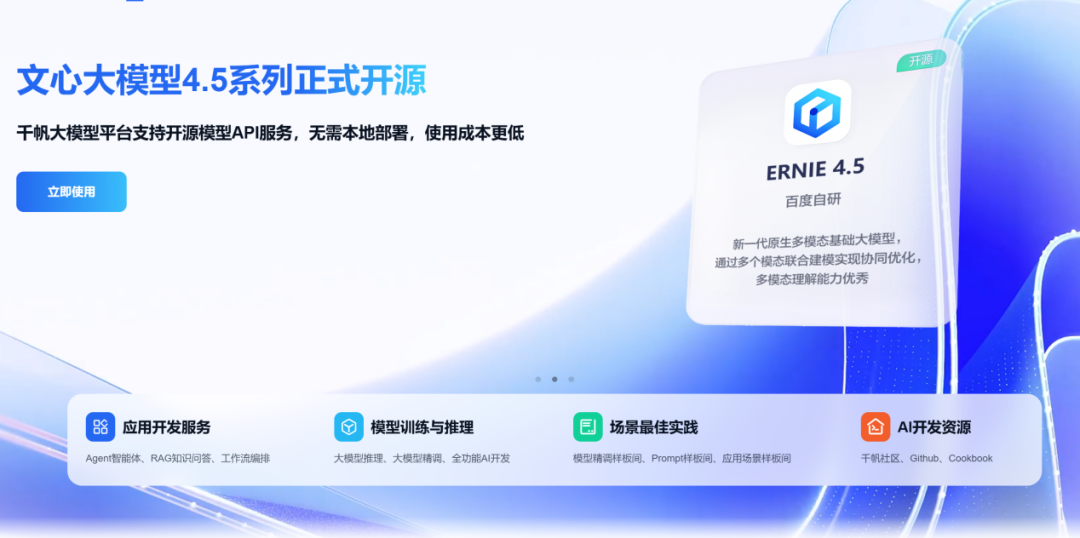
This platform-based approach reflects Shen Dou's profound insight into the future trajectory of cloud computing. Future cloud computing will transcend simple infrastructure services to become intelligent platform services. Enterprises will no longer need to build AI capabilities from scratch but can rapidly assemble and customize required AI applications on the platform.
The construction of the Baige AI Heterogeneous Computing Platform supports this strategy from the perspective of underlying computing power. Through the "one cloud, multiple chips" architecture design, Baidu Intelligent Cloud achieves unified management and scheduling of diverse chips, significantly enhancing computing power utilization efficiency.
The Wanyuan Operating System, defined as a "new generation of intelligent computing operating systems," essentially redefines the computing paradigm in the era of AI-native. By abstracting and encapsulating, it shields the complexity of cloud-native systems and heterogeneous computing power, providing developers with a unified development interface.
This system-level innovation showcases Shen Dou's deep thinking on technical architecture. He is not merely tweaking the existing cloud computing framework but redefining the technical architecture and service model of cloud computing.
The true value of the cloud-intelligence integration strategy lies in forging a differentiated competitive barrier. While other cloud vendors are still competing at the infrastructure level, Baidu Intelligent Cloud has already established its advantage at the application level. The effectiveness of this dimensionality reduction attack has been evidenced in subsequent market performance.
03 AI-Native Applications: A Blooming Landscape
The numbers speak volumes. As of June 2024, the Qianfan Platform had assisted users in developing 550,000 AI-native applications, an unprecedented number in the cloud computing industry. More impressively, over half of central enterprises utilize Baidu Intelligent Cloud for AI innovation.
Behind these figures lies the leap from proof-of-concept to large-scale industrialization of AI applications. In the manufacturing industry, Baidu Intelligent Cloud's vision AI platform aids steel enterprises in automating defect detection with an accuracy rate exceeding 99%. In the financial sector, Postal Savings Bank has enhanced credit approval efficiency by 300% through Baidu Intelligent Cloud's risk control model.
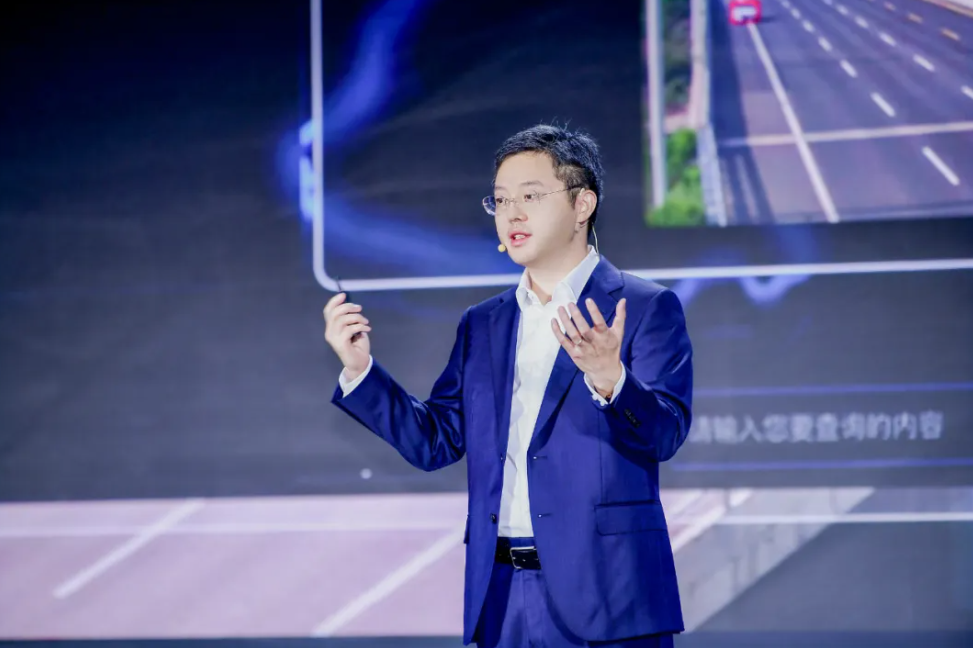
Traditional cloud services offer standardized computing resources, necessitating enterprises to develop applications independently. Conversely, Baidu Intelligent Cloud directly provides usable AI capabilities, enabling enterprises to achieve complex AI functions through simple configuration.
This "plug-and-play" AI service model effectively redefines the value creation method of cloud computing. Enterprises no longer need to invest heavily in technical resources for AI research and development but can focus on business innovation and scenario applications.
The fact that the Wenxin Large Model is invoked over 700 million times daily further illustrates the reality of large-scale commercial application of AI capabilities. This is not a mere technology demonstration in a laboratory but true industrial application.
The Qianfan Platform has cumulatively assisted users in fine-tuning 30,000 large models, a number that underscores the personalized demand for AI applications. Different industries, enterprises, and scenarios require diverse AI capabilities. Through its platform-based approach, Baidu Intelligent Cloud makes customized AI services a reality.
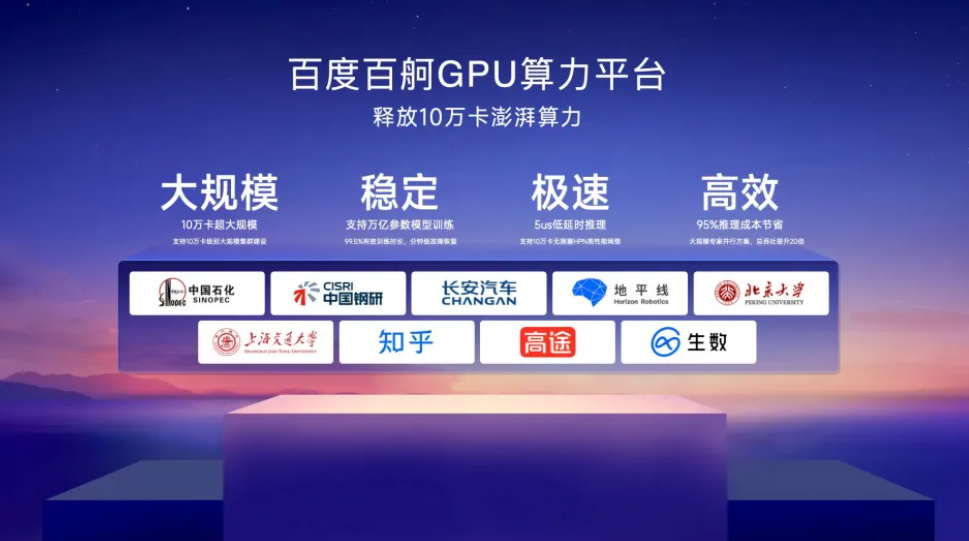
From a technical architecture perspective, realizing such large-scale applications necessitates robust underlying support. Baidu Intelligent Cloud's promotion of a 100,000-GPU cluster has achieved a 95% speedup ratio, providing a solid foundation of computing power for the training and inference of large models.
A deeper significance lies in business model innovation. Traditional cloud computing is a resource service billed based on usage, whereas AI cloud computing can be a capability service billed based on effectiveness. Enterprises pay for the AI capabilities and outcomes they obtain rather than for the computing resources consumed.
This shift in business models not only improves the return on investment for enterprises but also creates a higher value space for cloud service providers. Shen Dou is redefining the commercial value of cloud computing through this model innovation.
Conclusion: A New Technological Journey in the Cloud
Shen Dou's cloud breakthrough is a strategic bet on the future trajectory of cloud computing development. Instead of playing catch-up in the established paradigm of traditional cloud computing, he has blazed a new trail for AI-native cloud.
Behind this strategic choice lies a profound understanding of technological development trends. Against the backdrop of rapid AI technology advancement, traditional cloud computing architectures and service models are facing disruptive changes. Enterprises that lead in completing this transformation will gain the upper hand in the new round of competition.
The efficacy of this breakthrough battle is already evident. Baidu Intelligent Cloud's forefront position in AI applications is translating into commercial value, and its widespread adoption by central enterprise customers demonstrates market recognition of this new model.
However, questions still merit continuous contemplation, such as how to consistently transform technological advantages into commercial growth, how to expand market share while maintaining technological leadership, and how to respond to the follow-up and competition from other giants.
The transformation of Baidu Intelligent Cloud may be just the beginning, providing a reference model for China's cloud computing industry to transition from a follower to a leader. For Shen Dou, technology-driven innovation remains the most potent competitive weapon.






